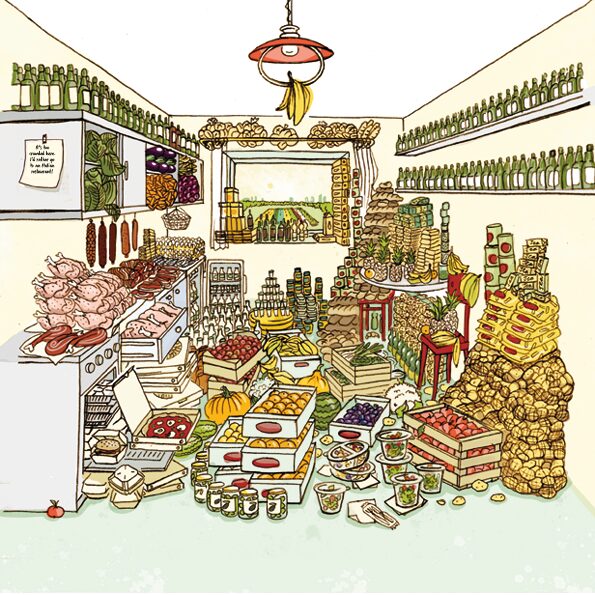My needs

How much do we need? How much do we have?
Kitchens, canteens, restaurants and supermarkets are the places where we cast our vote of what to grow on our 2000 m². With every purchase, we give farmers a mandate as to what they should produce and how good the quality should be. Every ingredient, every salad leaf, every loaf of bread, every sausage and every bag of potato chips has its own special place where it was grown and which it shapes as a result. In the case of ‘ready meals’, there are usually many places involved, often thousands of kilometres apart.
In Europe, most people, whether rich or poor, face the challenge of resisting the temptation to overeat and to eat the wrong things. Here, around 3500 calories are available per person (from infants to the elderly) every day. Anyone who consumes 3500 calories a day and is not involved in competitive sport, hard physical labour, or is breastfeeding, will become overweight, which can be life-threatening at some point. In Afghanistan, an average of just 2200 calories are available, which is hardly enough for a healthy life.* In contrast, the 2500 in India and 3400 in China are more than enough. Nevertheless, in all three of these countries, millions of people go hungry because of unequal distribution. Malnutrition and overnutrition often live side by side. Worldwide, 3.1 billion people (42 percent of the world’s population) cannot afford to eat a healthy diet; in Africa, the figure is as high as 78 percent of the population.
* The Planetary Health Diet assumes that the average adult needs 2500 kcal per day. This amount varies according to age, gender, activity level and health profile, but overconsumption is a waste of food that has both health and environmental costs.
